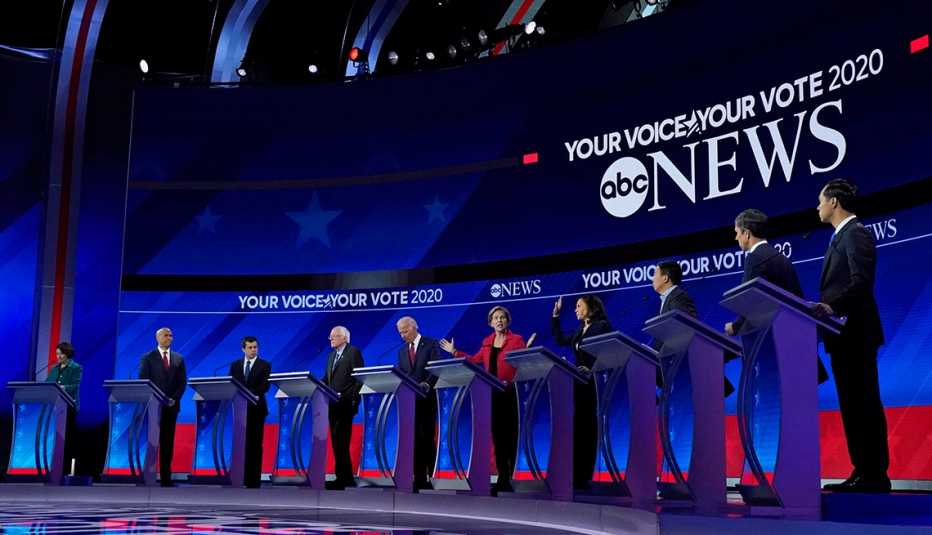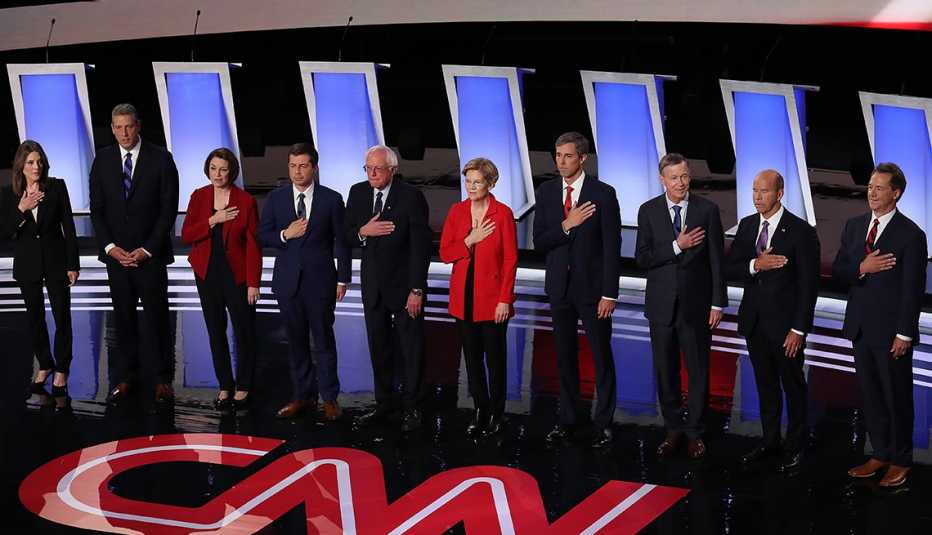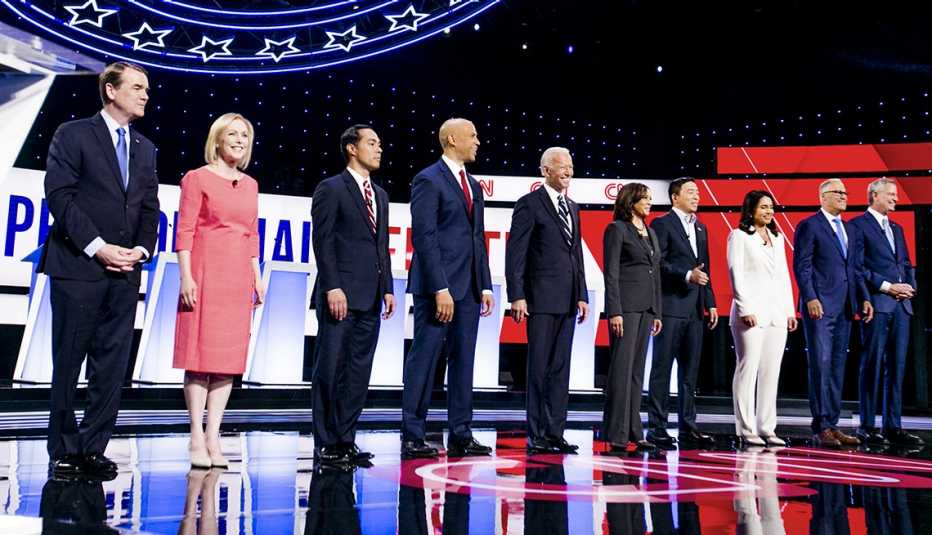AARP Hearing Center


The dominance of health insurance as an issue in the 2020 presidential campaign was evident again Thursday when the need to cover all Americans was the first topic 10 Democratic hopefuls tackled in the debate at Texas Southern University in Houston.
The candidates remain divided between those who would eliminate private health insurance and replace it with a “Medicare for All” system and those who prefer a buy-in to Medicare as an option — keeping commercial policies for those who like the insurance they have.
Vermont Sen. Bernie Sanders, who authored the first Medicare for All measure, and Massachusetts Sen. Elizabeth Warren, who supports it, want to do away with private insurance. South Bend, Indiana, Mayor Pete Buttigieg and entrepreneur Andrew Yang have said they would maintain private plans initially but believe the country will inexorably move toward Medicare for All, also called a single payer system.
The other Democratic hopefuls on the stage Thursday – former Vice President Joseph Biden, California Sen. Kamala Harris, New Jersey Sen. Cory Booker, Minnesota Sen. Amy Klobuchar, former Rep. Beto O’Rourke and former Housing and Urban Development Secretary Julian Castro — would maintain private insurance while providing a public option, including buying into Medicare, as an alternative.
“I think Obamacare worked,” said Biden, referring to the Affordable Care Act (ACA). Biden said he wants to “replace everything that has been cut, add a public option guarantee that everyone will be able to have affordable insurance.” But, Biden said, “of the 160 million people who like their health care now, they can keep it. If they don’t like it, they can leave.”



































































More on politics-society
The Importance of the 2020 Census
Cybersecurity and privacy concerns of older Americans addressedMore States Win Prescription Drug Protections
Illinois, Massachusetts, Ohio advance Rx fixes